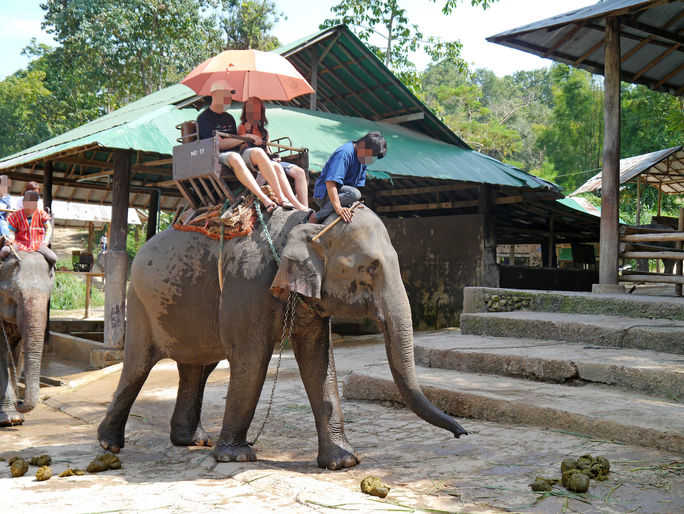The common perception of Bali as a tropical paradise for tourists belies the silent suffering of many of its wildlife inhabitants, according to a damning new investigation conducted by World Animal Protection.
Its report, aptly titled 'Paradise Lost', uncovers the nightmarish reality behind every single wildlife venue in Bali and Lombok, all of which are revealed as sites of unimaginable anguish for over 1,300 animals, including elephants, orangutans and dolphins.
In the name of tourist entertainment, these animals endure deplorable conditions, as well as abject physical, mental and emotional trauma. World Animal Protection’s distressing findings highlight that the majority of the investigated venues fail to meet even the most basic needs of the wild animals they hold in captivity.
The 2023 Paradise Lost report paints a grim picture:
- Ongoing Animal Suffering: Wild animals across all venues continue to endure inadequate conditions, with no discernible improvement over the past six years.
- Cruel Attractions: Elephant riding and bathing, wildlife close encounters and selfies, swimming with dolphins in artificial pools and touching turtles in confined spaces were identified as some of the cruelest wildlife attractions.
- Elephants in Chains: Shockingly, elephants were observed chained without shade during the day at prominent venues like Mason Elephant Park and Tasta Zoo.
- Travel Companies Continue Profiting: Despite a growing demand for responsible tourism, major travel operators, such as Trip.com, GetYourGuide and Traveloka persist in promoting and selling these inhumane wildlife entertainment attractions in Bali and Lombok, reaping profits from animal exploitation.
World Animal Protection’s investigation assessed 34 separate venues to form an accurate assessment of the wildlife tourism/entertainment industry on these two Indonesian islands. Despite some minor alterations since its last investigation in 2017, no changes were significant enough to rate any establishment anywhere near the 'best possible' scenario for any of the focal species.
"Bali might be a paradise for tourists, but wild animals are living in misery in venues across Bali,” said Liz Cabrera Holtz, Senior Programs Manager, World Animal Protection, US. “World Animal Protection is warning US tourists that there is currently no ethical way to view wild animals at tourist venues in Bali and Lombok. Tourists have a responsibility to ensure their travel experiences are not hurting animals. We're urging all travelers to steer clear of all wild animal venues, and instead support places like accredited sanctuaries and Wildlife Heritage Areas."

PHOTO: An Asian elephant is used to take tourists for rides. (Courtesy World Animal Protection)
World Animal Protection and World Cetacean Alliance recently launched a new global program, which works with responsible travel businesses and wildlife charities toward transforming the way people view, understand and interact with wildlife. The initiative introduces Wildlife Heritage Areas in various countries, including the United States, Peru, Colombia, Brazil, Italy, Australia, Portugal and South Africa. These areas serve as a groundbreaking solution to eradicate animal exploitation from the modern tourism sector.
It is long past time to shut down all exploitative attractions that subject animals to suffering by forcing them to be ridden, touched or posed for selfies with tourists. The tourism industry must evolve toward a sustainable model, which ensures that every wild animal’s right to live a wild existence is safeguarded.
For the latest travel news, updates and deals, subscribe to the daily TravelPulse newsletter.
Topics From This Article to Explore